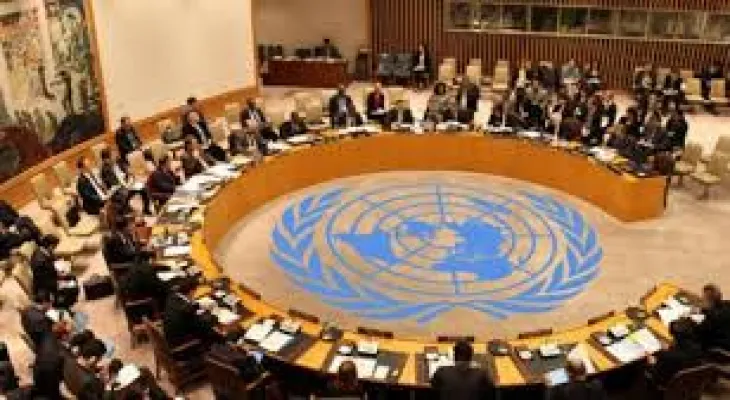Search here
Newspaper
Search here

Arab Canada News
News

Published: April 1, 2024
The Palestinian envoy to the United Nations told Reuters on Monday that the Palestinian Authority wants the UN Security Council to vote this month on granting it full membership in the international organization, a move that the United States, Israel's ally, can block.
Riyad Mansour, who holds permanent observer status at the United Nations, announced the Palestinian plans as the war between Israel and Palestinian Hamas fighters in Gaza approaches six months, and as Israel expands settlements in the occupied West Bank.
Mansour told Reuters that the goal is for the Security Council to make a decision at a ministerial meeting to be held on April 18 concerning the Middle East, but no date for the vote has been set yet. He said the Palestinian request for full membership in 2011 is still pending because the 15-member council has not made an official decision.
He added, "The intention is to bring the request to a vote in the Security Council this month."
Malta assumes the presidency of the Security Council for April
Malta's ambassador to the United Nations, Vanessa Frazer, said she has not yet received an official request to take action from the Palestinians.
Alongside efforts to end the war, global pressure has increased to resume efforts to mediate a two-state solution - with an independent Palestinian state alongside Israel.
The war began after Hamas fighters attacked Israel on October 7, resulting in 1,200 deaths and the holding of 253 hostages, according to Israeli statistics. Israel responded by imposing a full blockade on Gaza, then launched an air and ground attack that led to the death of more than 32,000 Palestinians, according to health authorities in Gaza.
United Nations approval
The application for full United Nations membership requires Security Council approval - where the United States can use its veto - followed by approval of at least two-thirds of the 193-member General Assembly.
The United States mission to the United Nations did not immediately respond to a request for comment.
Israel's ambassador to the United Nations, Gilad Erdan, said the Palestinian Authority did not meet the criteria required to establish a state in its 2011 attempt to obtain full United Nations membership and "has only moved away from the goals it should have achieved since then."
Erdan added: "Moreover, those who support recognizing the Palestinian state at such a time not only reward terrorism but also support unilateral steps that contradict the agreed principle of direct negotiations."
A Security Council committee evaluated the Palestinian request in 2011 for several weeks. However, the committee did not reach a unanimous position, and the council has never voted on a resolution recommending Palestinian membership.
At that time, diplomats said the Palestinians did not have sufficient support in the Security Council to force the United States to use its veto, which it said opposes the move. The resolution requires at least nine affirmative votes and no veto from the United States, Russia, China, France, or Britain.
Instead of pushing for a vote in the council, the Palestinians went to the United Nations General Assembly seeking to become a non-member observer state. The council approved the de facto recognition of the sovereign State of Palestine in November 2012.
There has been little progress towards achieving the Palestinian state since the Oslo Accords between Israel and the Palestinian Authority in the early 1990s. Among the obstacles is the expansion of Israeli settlements.
The Palestinian Authority, headed by President Mahmoud Abbas, exercises limited self-rule in the West Bank and is Israel's partner in the Oslo Accords. Hamas expelled the Palestinian Authority from power in the Gaza Strip in 2007.
Last month, Volker Türk, the United Nations High Commissioner for Human Rights, said Israeli settlements threaten to eliminate any potential Palestinian state. He said Israel's transfer of its population into the occupied territories amounts to a war crime.
The administration of U.S. President Joe Biden said in February that Israel's expansion of West Bank settlements is inconsistent with international law, indicating a return to the longstanding U.S. policy on this issue, which the previous Donald Trump administration had reversed.
Comments